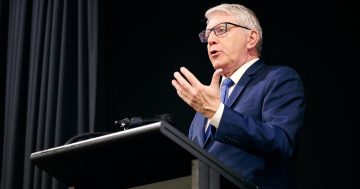Peter Ryan* says the latest survey shows corporate Australia is going backwards in efforts to achieve gender equality among CEO ranks.
 Gender equality among Australia’s top chief executive ranks could be 80 years away, with the latest survey showing female appointments are going backwards and some companies have no women at all in their leadership teams.
Gender equality among Australia’s top chief executive ranks could be 80 years away, with the latest survey showing female appointments are going backwards and some companies have no women at all in their leadership teams.
Of the 25 chief executives appointed to lead Australia’s top 200 companies in 2019, only two were women, with the percentage of women in the top role slipping to 6 per cent from 7 per cent a year earlier.
The annual census by Chief Executive Women (CEW), which represents 560 of Australia’s most senior female corporate leaders, slams “slow progress” in achieving gender balance, with 17 companies still having no women in their executive leadership teams.
CEW President, Sue Morphet, a former Pacific Brands chief executive, said the latest gender reading was disappointing, lamenting that gender equality at the CEO level could be generations away.
“There are some figures saying that we’ll be waiting about 80 years for it to be equal, which means my granddaughter will be 84 by the time we have equal representation,” Ms Morphet told the ABC.
“It is nonsense that in 2019 there are two female appointments as CEO out of 25 because there is such good talent in our organisations.”
“It’s not so much the blokes’ club as the fact that men don’t recognise the talent that exists in the women within their organisation.”
The two female CEO appointments in 2019 were Shemara Wikramanayake at Macquarie Group, who replaced Nicholas Moore, and Jolie Hodson at Spark New Zealand Limited, who took over from Simon Moutter.
Male CEO appointments include Brett Redman at AGL Energy, Francesco De Ferrari at AMP, Rob Adams at Perpetual and Renato Mota at IOOF.
The appointment of women to chief financial officer (CFO) roles has improved to 16 per cent of ASX 200 companies, from 12 per cent in 2018.
However, 114 companies still have no women in “line” roles answering to executive leadership teams, although that is a slight improvement from 119 in 2018.
Ms Morphet said company boards are short-sighted, thinking they can check a box by appointing women to roles outside the top leadership team.
“We have to be mindful that boards just don’t bring women in and say, ‘We’ve got one woman and we’re going to pop her in human resources and then we’ve done the job’,” she said.
Ms Morphet said many women with CEO potential were giving up because of the attitude of male-dominated boards.
“We will lose generations of really, really talented women,” Ms Morphet said.
“They do give up because they just can’t see that women make it to the top.”
“So, they get to a certain point and they leave corporations.”
“The talent pool is being depleted.”
But Ms Morphet does not agree quotas for female CEOs is the answer in the quest for equality.
“It’s more than quotas,” she said.
“I think it’s attitude.”
“Shareholders should be asking for it, I think boards should be looking for it.”
“Society has been for so many centuries the case that the man goes to work and the woman stays at home.”
“But I do think it is nonsense now that we are not being treated equally when it comes to opportunity in corporate Australia.”
Ms Morphet said company boards should review selection criteria for CEO roles and direct head-hunting firms to properly consider the pool of available female candidates.
The 17 companies with no women in their executive leadership teams include Evolution Mining, Afterpay Touch, Soul Pattinson and Whitehaven Coal.
* Peter Ryan is the ABC’s senior business correspondent. He tweets at @Peter_F_Ryan.
This article first appeared at www.abc.net.au.











